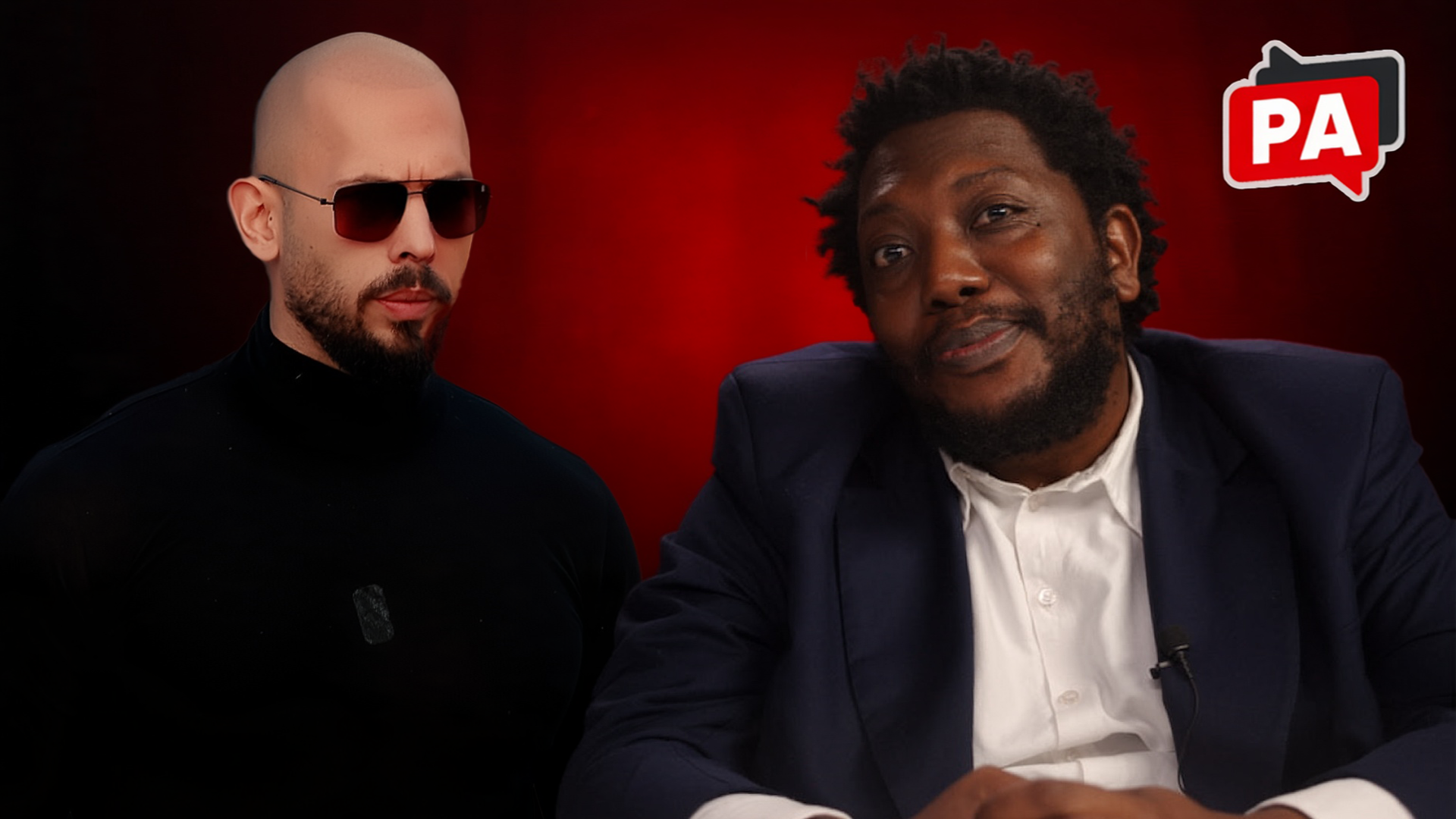South Africa loses about seven women to murder every single day, one of the highest femicide rates on Earth. Yet, instead of a national reckoning, parts of the internet have decided the real victims… are men.
Hosts KG Mokgadi and Zoë Human tackle South Africa’s gender-based violence epidemic with their trademark satirical edge – using a falling-chair meme to take the edge off truly grim statistics. (Thanks, Nhlanhla Nene, for your public service to comedy.)
But the punchline lands hard: misogyny is mutating online, fuelled by algorithms, podcasts and influencers who turn grievance into a growth industry.
Zoë says: “To understand South Africa’s shocking levels of gender-based violence, we need to turn the spotlight onto men.”
From Andrew Tate declaring “never trust South African women”, to local podcast bros like MacG fuelling the fire with his controversial comments about Minnie Dlamini, the Politically Aweh team follows the pipeline: how young men searching YouTube for gym tips get served a side-order of misogyny, and how WhatsApp “shade rooms” can ruin teenage lives in hours.
Wessel van den Berg, senior advocacy officer at Equimundo, and social media law expert Emma Sadleir reveal how South African boys are easy prey online when they just want tips on fitness, dating or mental health. They are being pulled into the “manosphere”, a sprawling network of online influencers and forums that cast women as the enemy, celebrate dominance and treat empathy as a weakness.
But this isn’t just about memes and podcasts. It’s about real-world harm. Image-based violence, revenge porn leaks and online harassment are driving girls to despair, even suicide. Offline, South Africa’s femicide and assault rates remain sky-high, while men themselves face unaddressed trauma, suicide risk and social disconnection.
“Comrades, you can argue all you like,” adds KG, “but the bottom line is, women say they don’t feel safe around us.”
The episode skewers everyone: Politicians like Limpopo premier Phophi Ramathuba who victim-blame (“Open your books and close your legs,” anyone?); global grifters like Tate monetising male rage via “Hustler’s University”; local podcasters who mistake misogyny for banter; Big Tech platforms that profit from hate while pretending to moderate it.
At the same time, Politically Aweh highlights real issues buried under the bravado: unemployment, male educational dropout, mental health crises and fatherlessness – legacies of apartheid and a failing economy. These pressures are real, but online rage merchants twist them into fuel for violence rather than solutions.
Government efforts – from new GBV laws, to talk of regulating podcasts – get the show’s trademark side-eye. Politically Aweh asks whether South Africa will actually hold platforms accountable, or simply produce more “strategic plans” while the algorithm keeps churning out hate.
In classic Aweh style, the show never lets viewers off the hook. Men need to challenge other men. Parents and teachers need to raise boys who can process trauma without projecting it onto women. And tech giants? Maybe stop optimising sadness for profit.
The Algorithm of Misogyny is streaming now on YouTube. Watch it before your cousin’s WhatsApp group turns it into a TikTok dance challenge called #NotAllMen. DM
For more from Politically Aweh, subscribe on YouTube, visit our website or follow us on Instagram, Facebook, TikTok or X.





